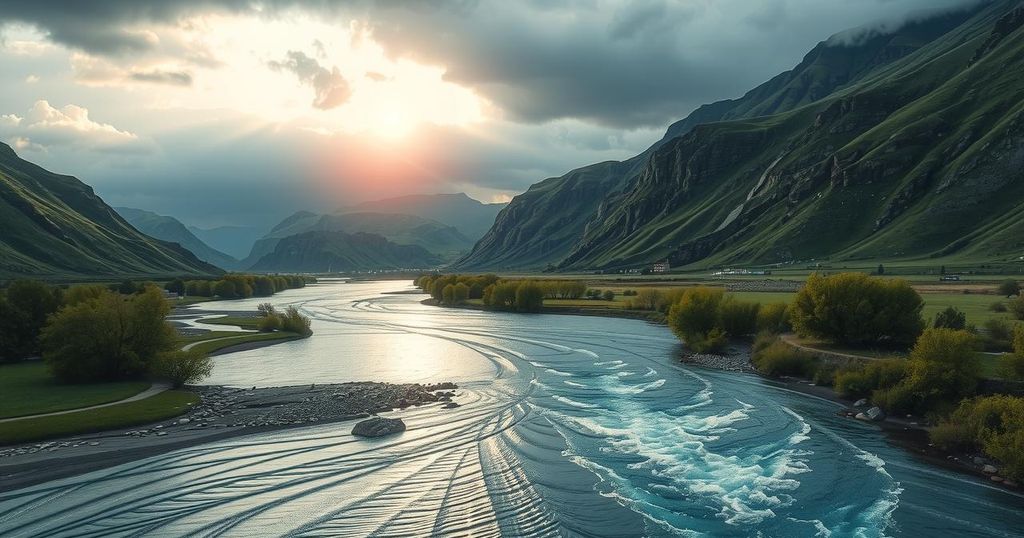Rising Tensions: M23 Rebels and Rwanda’s Role in the DRC Conflict
Rebels backed by Rwanda have claimed to capture Goma in the DRC, intensifying ongoing conflict and humanitarian woes. The M23 group, composed mainly of ethnic Tutsis, accuses the DRC government of neglecting peace agreements. Meanwhile, allegations arise that Rwandan troops are directly aiding the rebels, heightening fears of a potential invasion and regional conflict.
The conflict in the Democratic Republic of Congo (DRC) has escalated, with Rwandan-backed rebels claiming control of Goma, a crucial city in the region. This territorial gain exacerbates an already dire humanitarian crisis, with numerous casualties reported daily. In a troubling development, allegations have surfaced regarding Rwandan troops fighting alongside these rebels, prompting fears of a regional conflict emerging from this situation.
The M23 rebel group emerged following a peace accord on March 23, 2009, which attempted to resolve past conflicts involving ethnic Tutsis in the DRC. The group accuses the DRC government of failing to uphold the agreement, particularly regarding the integration of Congolese Tutsis into state structures. Since its inception, M23 aims to safeguard Tutsi interests against Hutu militias, while critics maintain that this rebellion serves as a facade for Rwanda’s ambitions for political and economic control in eastern DRC.
Rwanda’s involvement continues to raise significant concerns; many observers interpret the actions of Rwandan troops alongside M23 rebels as an invasion of DRC territory. A UN Security Council report indicated that Rwandan forces command M23 operations, heightening fears of Rwanda facing accountability for the group’s actions. As the situation escalates, the DRC has cut diplomatic ties with Rwanda, considering a declaration of war that could have grievous implications for East African stability.
Goma, with a population of nearly two million, is vital for regional trade, security, and humanitarian initiatives. Since 2021, DRC forces, alongside troops from Burundi and UN peacekeepers, have endeavored to keep the M23 at bay. The city was briefly captured by M23 in 2012, and their potential reoccupation now raises severe concerns about the humanitarian consequences for the local population.
The conflict in the DRC is a complex interplay of ethnic tensions, historical grievances, and regional power dynamics, primarily involving the Hutu and Tutsi ethnic groups. The M23 movement specifically arose from frustrations over the integration and treatment of Tutsis within the Congolese government and military. The involvement of Rwanda further complicates the situation, as it has historically had vested interests in the DRC’s eastern provinces, particularly in regard to valuable mineral resources.
The fighting in the DRC, intensified by M23’s recapture of Goma and Rwandan support, poses immediate threats to regional stability and human rights. The increasing allegations of Rwanda’s military engagement alongside the rebels suggest a significant breach of sovereignty, raising fears of wider conflict in East Africa. The international community must closely monitor these developments to avert further humanitarian crises.
Original Source: news.sky.com




Post Comment